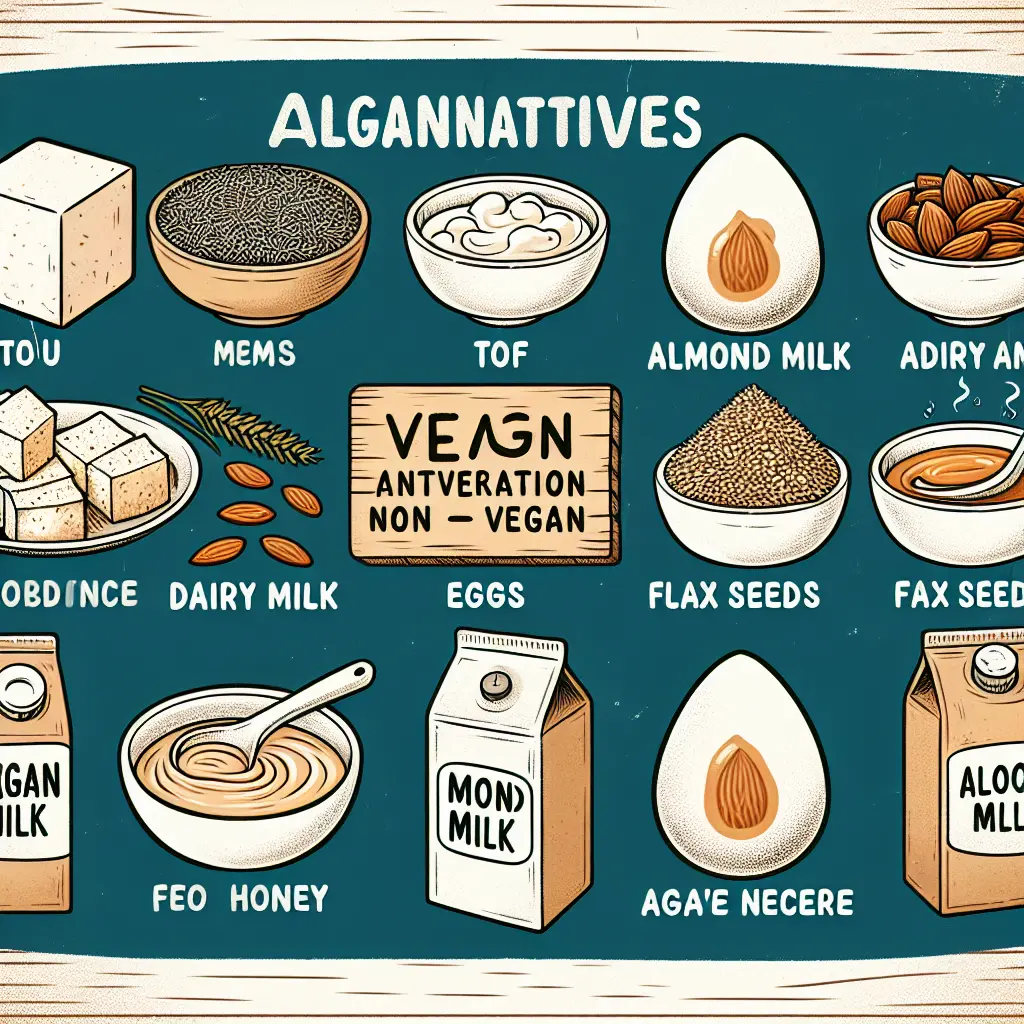
In recent years, the rise of veganism has sparked a revolution in the culinary world, leading to an impressive variety of vegan substitutes and plant-based alternatives. These innovations not only cater to vegans but also to anyone looking to explore dairy-free options, egg-free solutions, and cruelty-free eating. Whether you're a seasoned vegan or just dipping your toes into the plant-based diet, understanding these alternatives is essential for both health and culinary diversity.
Vegan Substitutes: A Culinary Innovation
The quest for suitable vegan substitutes for common non-vegan ingredients has led to the creation of a plethora of options that make vegan cooking not only possible but delightful. Vegan butter alternatives and non-dairy milk like almond milk have become staples in vegan pantries. Similarly, vegan cheese substitutes and tofu as a meat replacement offer satisfying alternatives that don't compromise on flavor or texture.
Recent news highlights the dynamic nature of veganism in contemporary society. For instance, stories about jacked vegan powerlifters and strength athletes defy the outdated stereotype that vegans lack strength and muscle (Source: Healthline). Such examples not only challenge prevailing perceptions but also inspire a broader audience to consider plant-based diets.
The New Food Revolution
Brands across the globe are adapting to this new food revolution by expanding their range of plant-based alternatives (Source: Forbes). This shift is not just about catering to vegans but also about addressing the growing consumer demand for healthier, sustainable choices.
Historical Context and Radical Views
Reflecting on historical perspectives, like those of 19th-century animal rights activists, can inspire modern movements (Source: The Vegan Society). These early pioneers had a lot of moxie, advocating for a cause far ahead of their time. In similar veins, modern vegans are often seen as radical for challenging conventional dietary norms, emphasizing why such radicalism is necessary for societal shifts towards sustainability and ethics (Source: The Guardian).
Dietary Impacts on Health
Recent studies have shown that switching to a plant-based diet can significantly reduce one's biological age by up to 7.5 months in just eight weeks, highlighting the potential health benefits of vegan diets (Source: Science Daily). This finding is crucial as it adds to the growing body of evidence supporting the health advantages of eliminating animal products from our diets.
Exploring Vegan Ingredients and Cooking Tips
Vegan baking ingredients and cooking techniques have also evolved. Aquafaba, the liquid from canned chickpeas, works wonderfully as an egg replacement in recipes requiring meringues or mayonnaise. Nutritional yeast is another gem in the vegan kitchen, offering a cheesy flavor without the dairy, making it perfect for cashew cheese or as a topping in various dishes.
Seitan recipes and tempeh uses have expanded, with these ingredients serving as excellent protein sources. Seitan, made from wheat gluten, is versatile and can be used in recipes ranging from stir-fries to grilled dishes. Tempeh, fermented from soybeans, offers a nutty flavor and can be used in anything from salads to hearty stews.
Vegan gelatin alternatives like agar-agar have enabled the creation of cruelty-free desserts that are as delightful as their non-vegan counterparts. Coconut yogurt provides a creamy, dairy-free alternative perfect for breakfast bowls or smoothies, further enriching the variety available to those following a vegan diet.
Personal Stories and Label Challenges
The journey into veganism isn't always straightforward. Some individuals explore what it's like to give up the label of vegan or vegetarian as they navigate their personal and social circles (Source: BBC). This exploration highlights the fluidity of dietary identities and the personal nature of diet choices.
Conclusion
The world of vegan substitutes and plant-based alternatives is rich and varied. From almond milk to seitan recipes, these options have transformed what it means to cook and eat vegan. They not only cater to those committed to cruelty-free eating but also offer health benefits and meet diverse dietary needs. As brands continue to innovate and cater to this growing market, the potential for a broader acceptance and integration of vegan options seems promising.
Thank you for joining me on this exploration of dairy-free options, egg-free solutions, and all things vegan. Whether you're a seasoned plant-based chef or just starting out, remember that every meal is a step towards a healthier life and a more sustainable world.
Stay curious and compassionate,
Lucas Sheridan